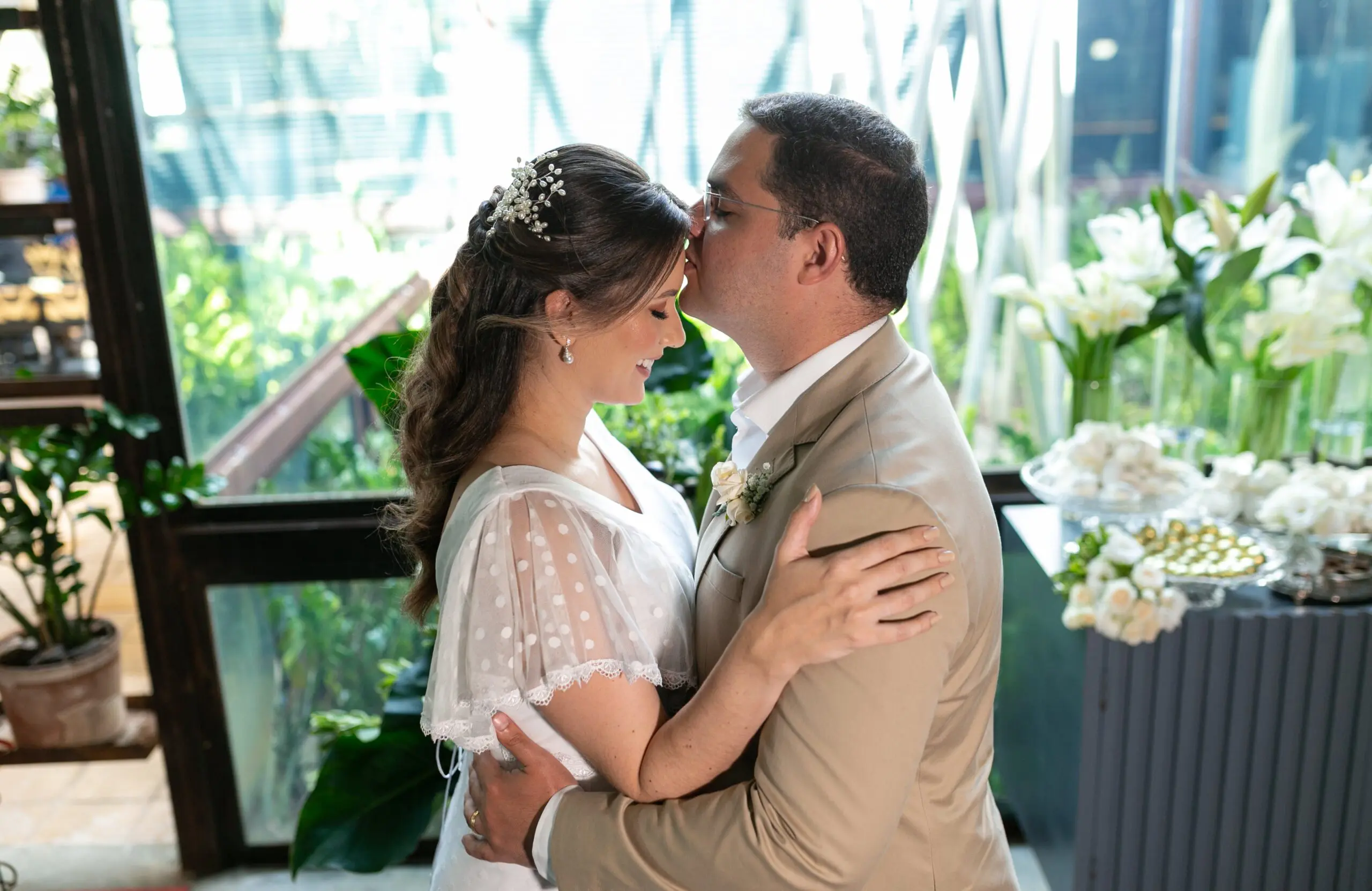Marrying a Non-US Citizen: Prenuptial Agreements and Legal Considerations
Congratulations on your engagement and finding the love of your life abroad! The timeless tale of marrying someone from another country whom you love deeply is truly wonderful. Unfortunately, the reality of marrying someone from another country is lots of paperwork and legal hurdles. However, it’s not impossible to get your fairytale started in America. And, don’t forget about that prenup! A prenup is that much more important in the context of marrying a non-US citizen.
Benefit of a prenup for a US citizen
So, why get a prenup? Having a prenup when marrying a non-US citizen is an excellent way to provide an extra layer of protection to yourself in the worst-case scenario that you get a divorce.
Typically, immigrant spouses come to the US and are sponsored by their US citizen spouses. This means that the US citizen spouse is financially responsible for their partner, even if they get a divorce!
Therefore, the US citizen could be providing for their ex-spouse for years and that doesn’t even include the assets that may be paid to them via divorce. In other words—a US citizen can be hit with the fees of both sponsoring their non-US citizen spouse and the divorce settlement.
Luckily, with a prenup, the US citizen can at least protect themselves from losing out on assets via the divorce settlement.
Prenup Requirements
There are a couple key requirements to understand when thinking of prenups in the context of immigration:
The protection a prenup provides is ensuring that certain assets you own are protected in a divorce. In other words, you don’t lose out on assets from the divorce AND the sponsorship of the visa.
1
Notarized
Prenups must be notarized and sometimes witnessed (depending on your state). Not all states require notarization, but it is highly, highly recommended.
2
Execution
Prenups must be executed a sufficient amount of time before the wedding day. Each state has its own requirements, but a good rule of thumb is to start the prenup process three to six months before the wedding day.
3
Voluntary
Prenups must be entered into voluntarily. This means that they must understand the terms of the prenup and not be forced under duress or coercion to sign the agreement.
There are more requirements, such as putting the agreement in writing, avoiding unconscionable terms, and more. The requirements of a prenup are dictated by state, so each state varies slightly on what is necessary.
Why are these prenup requirements so important? Well, if requirements such as notarization, having enough time before the wedding, and voluntariness are not met, then the prenup may be thrown out.

Can I get a prenup when marrying a non-US citizen?
Yes! Prenups can be extremely helpful for people that are sponsoring their partner who is not a US citizen because it adds an extra layer of protection. As you may already know, when you sponsor a non-US citizen to come to the US under certain visas, you are responsible to financially support them for a number of years, even if you get divorced.
The protection a prenup provides is ensuring that certain assets you own are protected in a divorce. In other words, you don’t lose out on assets from the divorce AND the sponsorship of the visa.
Prenup issues you may encounter when marrying a non-US citizen
We totally understand that anything legal-related can be difficult, confusing, and frustrating. But it can be a whole new world of challenges when you marry a non-US citizen. Here are some issues you may face when obtaining a prenup with a non-US citizen.
Notarization issues
Maybe your partner is overseas and has no way of coming to the US to get their prenup notarized. In this case, you have two options. The best option is to have your partner visit a US embassy or consulate to have the prenup notarized. US embassies and consulates provide a similar service to the functions of a notary public in the US. These services may be performed for any person, regardless of nationality, as long as the document being notarized is required for use within the jurisdiction of the US.
The second option is to have the prenup notarized by a local foreign notary and then authenticated for use in the US. US embassies and consulates offer authentication services.
For countries who are parties to the Hague Apostille Convention, this is a fairly simplified process. An apostille is a document which authenticates the seals and signatures of officials on public documents so
that a document signed in a foreign country will be recognized in another country (as long as both countries are part of the convention).
The protection a prenup provides is ensuring that certain assets you own are protected in a divorce. In other words, you don’t lose out on assets from the divorce AND the sponsorship of the visa.
Language barriers

If your partner is unable to read and understand the terms of the prenup, that can pose a huge issue, and even get your prenup thrown out at a later date. Making sure you have a translator is crucial here.
The second option is to have the prenup notarized by a local foreign notary and then authenticated for use in the US. US embassies and consulates offer authentication services. For countries who are parties to the Hague Apostille Convention, this is a fairly simplified process. An apostille is a document which authenticates the seals and signatures of officials on public documents so that a document signed in a foreign country will be recognized in another country (as long as both countries are part of the convention).
The protection a prenup provides is ensuring that certain assets you own are protected in a divorce. In other words, you don’t lose out on assets from the divorce AND the sponsorship of the visa.
Foreign asset questions

You may run into a big question about property: what do I do with my (or my partner’s) foreign assets? This may include a house, bank account, investment fund, or other things. Can a prenup protect these?
For starters, you should include all assets, including foreign assets, in your financial schedule as transparency is necessary for full disclosure.
And, yes, a prenup can protect foreign assets. However, there may be some obstacles, such as having trouble valuing the foreign asset in a divorce. Another obstacle may be trying to enforce a US court order in a foreign country.
Timeline issues

Visas and trips overseas are often limited by time, which can make getting a valid and enforceable prenup difficult. Let’s say your partner is on the K-1 fiance visa and you two have to get married before the 90 days is up. Well, this poses an issue because prenups must be done a significant amount of time before the wedding day. Some states even have harsh requirements here and will automatically invalidate a prenup done too close to the wedding day, like in California. We recommend starting the prenup process three to six months before the wedding to give yourself enough time. The 90 days may be enough time for you or may not. For example, if negotiations between you and your partner take months, which can happen, you’ll run out of time to execute a valid and enforceable prenup in that 90 day window.
Travel issues

If traveling to the US is a problem, then it may make it extremely difficult to get a prenup. Prenups should be notarized and sometimes witnessed, which means that both partners (even the non-US citizen) must sign the prenup in front of the notary and witnesses. You may do the notarization process separate from your partner.
Timing can also pose a challenge on travel. Depending on the visa type chosen for your partner, they may not be able to travel to the US on a visitor visa while their immigration paperwork is pending. Marrying a US citizen shows immigrant intent, which means intent to live in the US on a permanent basis. A visitor visa requires nonimmigrant intent, which means that you DON’T intend to stay in the U.S. Once an immigrant petition has been filed for your partner, they can no longer prove nonimmigrant intent, meaning they won’t likely be able to travel / gain admission into the US in the meantime. You’ll want to time the filing of immigration paperwork in consideration of travel plans, prenup negotiations, etc. to minimize any difficulties.
Immigration Considerations for Marriage: Expert Insights in Our Immigration Podcast with Attorney Julia Funke, Esq.
What are the options for marrying a non-US citizen? What processes are involved in legalizing documents in the US and obtaining a green card? How can a prenup help me organize my life with my non-US citizen partner? How to obtain a K-1 visa to bring my partner and get married here in the US?
These and many more questions are answered in our podcast with the immigration expert.
Watch it now!
Prenup + immigration scenarios
Let’s walk through some examples of how prenups and immigration collide and what it might look like in the real world.

Scenario 1:
My partner doesn’t have a visa yet but we want to get a prenup
Matt and Katie are planning on getting married. Matt is from Canada and is a non-US citizen, while Katie is a US citizen. Matt has not been able to obtain a US visa yet, but they know that they want a prenup before getting married.
There are generally three ways to go about getting a prenup in this situation:
- Have Matt travel to the US for a week or so just to have the prenup finalized, signed, and notarized and then have him return back to his home country;
- Apply for the K-1 fiance visa and wait until that clears to get the prenup done during that 90-day visa stay; or
- Have the prenup done virtually and then have it notarized at a local US embassy.
The only problem with Option 2 is that you may run out of time to get the prenup done. The K-1 visa is valid for 90 days, and you must get married before the end of those 90 days. The problem arises because of timing: we recommend you get the prenup process started three to six months before the wedding day. The 90 day timeline of the K-1 visa can make this prenup process difficult if negotiations take too long or other obstacles present. And keep in mind, in some states, prenups are automatically invalid if done too close to the wedding day, such as in California.
Even if you plan to execute the prenup during the 90-day visa stay, it’s likely best to start the prenup negotiations while waiting for the K-1 visa to be approved (which can take up to a year or more anyway), to ensure adequate time to finalize everything.
Bottom line: Your best bet is to have your partner fly out to get the prenup done before getting married to avoid any timeline issues with the prenup process.

Scenario 2:
Divorcing a non-US citizen without a prenup
John and Maria have been married for two years. Maria is a citizen of Mexico, living in the United States based on her marriage-based green card. John is a US citizen. They do not have children. They also did not execute a prenup before their marriage. The outcome of the divorce could be as follows (depending on the state and circumstances):
- John is required to pay alimony to Maria for a period of time because Maria’s unemployable due to her English speaking skills.
- John is required to sell the house they purchased during the marriage and split the proceeds with Maria.
On top of the divorce settlement above, John is also required to financially support Maria according to the requirements laid out by her green card sponsorship for a period of around 10 years (until she reaches 40 quarters of qualifying work in the US) or until she becomes a US citizen. These obligations are not released even if they get divorced. This is because in sponsoring Maria’s green card, John was required to execute an affidavit of support, which is essentially a contract with the US government.
While you cannot execute a prenup to get around your obligations to the US government in sponsoring the marriage-based green card, a prenup CAN protect your assets in the event of divorce. Without a prenup, the stakes are twice as high.
In the scenario above, had John had a prenup, he could’ve avoided paying even more assets through the divorce settlement and only been required to pay what was necessary under the green card. As you can see, for those marrying a non-US citizen, a prenup is especially important.

Julia Funke
Immigration Articles
The Digital Nomad Visa And Your Prenup
Imagine this: You and your new spouse jet off to the enchanting country of Portugal for your...
Frequently Asked Questions about Prenuptial Agreements in Spanish
A frequently asked question we encounter is how to handle a prenup when one or both parties aren't...
Immigration Issues And Prenup Talks On 90 Day Fiancé
In the world of reality television, TLC's "90 Day Fiancé" has captured the attention of audiences...
Navigating International Love: Prenup Considerations for Non-U.S. Citizens
Are you a non-U.S. citizen? Do you or your partner want a prenup? Are you clueless as to what you...
The Challenge of Enforcing International Premarital Agreements
With the world becoming more connected (thanks to remote work, airplanes, and modern technology),...
Why Having Separate Bank Accounts May Hinder Your Immigration Process
Immigrating to the United States is a complex and nuanced process that involves navigating various...
HelloPrenup is supported by top attorneys across the country
“I love HelloPrenup’s approachable brand, and I’m energized by the market opportunity and collaborative product. I’m honored to be part of the team. By reducing the intimidation factor of these important legal documents, we’re empowering couples to make decisions that are best for their marriage during what should be the most exciting time in their lives.”
Our Legal Advisors
We take “for richer, or for poorer,” very seriously.

Raymond Hekmat, Esq.
Top California Prenup Attorney

Marcia Mavrides, Esq.
Top Massachusetts Family Law Attorney

Charles Kazarian, Esq.
Top Legal Ethics Attorney
You’re writing your life story together. Make sure you’re on the same page.
Sign-up. Complete prenup. Get married.







